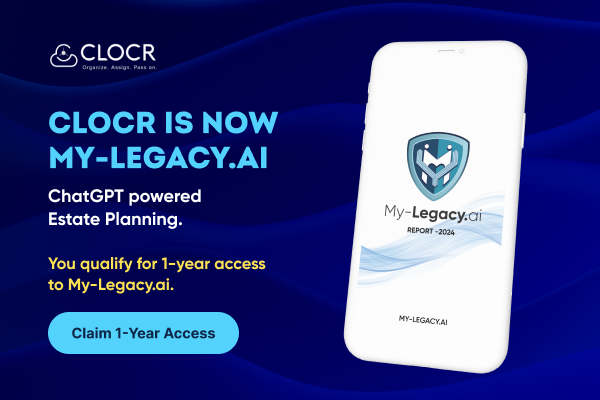Are you wondering if it’s important to plan and protect the Digital Legacy of your loved ones? Well! Here is some food for thought: an average netizen owns 90 accounts. Most people use online banking services, digital stores, and social media accounts. We often abandon some of these social apps without deleting our accounts.
Imagine all the Digital Platforms where your loved ones have made a profile and ask yourself, “how significant is their Digital Estate?”. Does it seem crucial to make plans for managing their Digital Legacy after they are gone? If yes, then we got you. Before we deal with how to plan for someone’s digital assets let’s see the law governing these assets.
Laws Governing Digital Assets
The government effectively implemented the Revised Uniform Fiduciary Access to Digital Assets Act (RUFADAA) in 2015, providing a legal mechanism to manage the Digital Assets of the deceased or incapacitated online account users.
Any trusted person or fiduciary can access and manage their loved one’s Digital Estate. Sometimes, the owner passes away before electing a fiduciary. The terms of the service provider would affect the account during such cases.
The act seems straightforward, but each state has created its take on Digital Estate Laws. Some states still lack rules about Digital Asset management. Besides, people continuously update their terms of service, making the implementation of the act tricky.
A little bit of planning can go a long way in managing their Digital Assets after their demise.
Draft A Digital Inventory
Without a Digital Inventory, you will not find the Digital Assets of your loved ones. An email account is a good starting point for uncovering information. Luckily your loved ones’ devices might still be logged into the email account.
You can also check bank accounts to collect ledge about utilities, insurance, and entertainment services. However, it is best to make a digital inventory while you have time. Professionals recommend dividing your Digital Assets into the four following parts:
- Financial accounts
- Passwords
- Email ids and social media accounts
- Media, music, books, and intellectual property
Some password management services allow users to select a person to access accounts during emergencies. Google accounts and some social media platforms also have options to manage or memorialize accounts in the event of someone’s passing.
Remember to ensure the safety of financially-successful Digital Assets such as domain names, digital currencies, and social media platforms.
Safeguard Their Privacy
A fiduciary is a person who has access to Digital Assets. It means that they can handle the deceased or incapacitated person’s social media accounts, operate payment apps, crypto, etc. Most people would not like someone else having access to information about their life. Discuss your rights with Digital Executor and an attorney to find out if you can keep some information private even after your demise.
Involve A Professional
Consulting a professional is the best option for anyone wanting to manage their Digital Legacy. Unfortunately, probate law has not taken notice of Digital Estate Planning for now. The best professional to go to is an estate lawyer with experience in Digital Assets.
Digital Legacy Planning is becoming crucial every day, but only a few attorneys specialize in that area. While appointing a lawyer, consider the following factors to gauge their understanding of the topic:
- Do they have any professional training in handling Digital Assets?
- Do they have reliable materials and sources for Digital Legacy Planning?
Clocr provides digital estate solutions so join Clocr today and get all the help you need in creating a Digital Legacy Plan.

